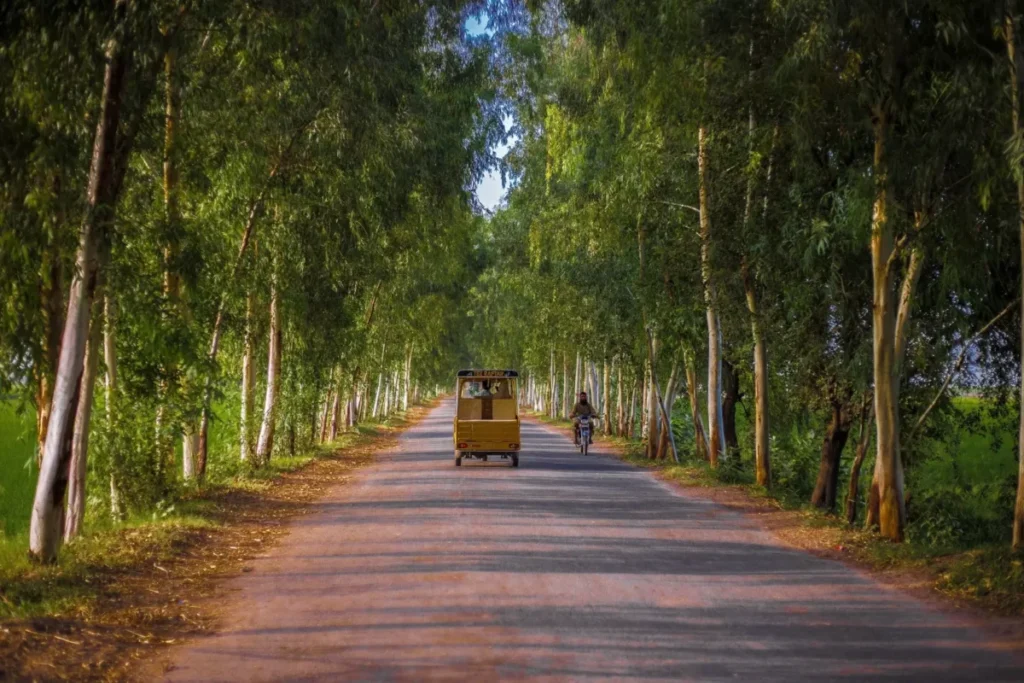Pakistan is adopting a number of eco-friendly programs to address environmental issues and advance sustainability. The nation’s multiple policies and initiatives aimed at promoting a greener and more sustainable future demonstrate its commitment to combating climate change and pollution.
The government’s green policy was founded on the Billion Tree Tsunami (2014–18) program, which successfully implemented the idea that using natural solutions could both maintain and protect the environment and perhaps promote the growth of a different kind of green economy.
Introduction
Pakistan has long been plagued by environmental problems. There are different environmental issues facing the nation, such as deforestation and air pollution, which call for swift response. The government’s aggressive approach to green projects demonstrates how engaged it is to resolve these issues and encouraging a healthy environment for its people.
Given border and skillfulness challenges, Pakistan has the chance to improve evolution through environmental decentralization by defining and updating federal, provincial, and municipal duties and responsibilities, as well as which policy measures need to be done by whom and how to coordinate them all.
Plantation Drives for Trees
The Billion Tree Tsunami project is one of Pakistan’s most prominent green projects. The Khyber Pakhtunkhwa province government launched this effort in 2014 with the goal of encouraging rehabilitation and preventing deforestation. The massive **Ten Billion Tree Tsunami** initiative, a national drive to plant ten billion trees over the following five years, was born out of this project’s success. This program fights soil geological process and encourages biodiversity in addition to lowering carbon emissions.
Initiatives Using Renewable Energy
Pakistan is substantially investing in renewable energy projects as part of its drive for sustainability. By 2030, the nation wants to reach a 30% renewable energy share. The business enterprise of wind farms, hydropower facilities, and solar parks are examples of large-scale undertakings. One of the biggest solar parks in the world, the Quaid-e-Azam Solar Park in Bahawalpur helps the country’s grid and lessens its need on fossil fuels.
Climate Action Plans
Pakistan’s National Climate Change Policy and the Pakistan Climate Change Act of 2017 both demonstrate the country’s commitment to turn climate change. These frameworks offer a thorough method for addressing challenges connected to climate change, encompassing both adaptation and mitigation techniques. The creation of the Climate Change Authority assurance the efficient execution, oversight, and updating of climate action plans to address new issues.
Sustainable Cities Development
Pakistan’s ecology is seriously threatened by the country’s fast urbanization. The government has launched a number of initiatives to promote sustainable urban development in order to address this. Building resilient cities that can endure natural structure and the effects of climate change is the main goal of the Pakistan Urban Resilience Project. Reducing the carbon footprint of occupier regions also requires promoting green buildings and sustainable construction techniques.
Managing Waste and Recycling
Preserve the environment requires efficient waste management. Pakistan has started a number of projects, such as waste-to-energy and recycling programs, to enhance waste management techniques. One such example is the Lahore Garbage Management Company (LWMC), which uses cutting-edge techniques for waste collection and disposal to maintain the city tidy and minimize waste going to landfills.
Attempts to Conserve Water
Pakistan faces a over serious problem with water insufficiency, which is made worse by population expansion and climate change. The National Water Policy and the Clean Green Pakistan Movement are two examples of the numerous water conservation programs the government has establish These initiatives seek to enhance provision techniques, encourage water conservation, and guard against over-extraction and contamination of water supplies.
Promoting Eco-Friendly Practices
Education and public awareness military campaign are essential parts of Pakistan’s green programs. Through campaigns, workshops, and educational initiatives, the government and non-governmental organizations (NGOs) are aggressively encouraging environmentally friendly activities. Commendation to adopt sustainable lifestyles, cut waste, and plant trees is provided by the Clean and Green Pakistan program.
Obstacles and Prospects for the Future
Pakistan continues to encounter several obstacles in its movement of sustainability, even with notable advancements. The implementation of green programs might be obstructed by factors such as political instability, lack of technical skills, and limited financial resources. But Pakistan may overcome these challenges and accomplish its environmental goals if it remains committed and works with international partners.
Using technology and innovation may outstanding improve Pakistan’s green projects. The nation may advance its sustainability efforts via embracing smart technology, encouraging green entrepreneurship, and investing in research and development.
Working together with other nations and international organizations can provide Pakistan the tools and psychological feature it needs to address environmental challenges. Access to finance, technology, and best practices for sustainable development may be expedited for Pakistan through participation in international environmental conferences and consent
Community Involvement and Education
Green projects must succeed in increasing public knowledge of environmental challenges. Political campaign is being run by the government and a number of non-governmental organizations (NGOs) to inform the public about the value of environmental condition and the ways in which they may support these initiatives.
Inspiriting students to learn about the environment is only one step closer to sustainability. Pakistan hopes to raise a generation of people who are dedicated to and aware of environmental protection by teaching young kids about the value of green projects and sustainable action
Conclusion
Pakistan has shown a significant engagement to tackling environmental challenges and raising sustainability through its green programs. The nation is making great progress in the direction of a cleaner future with initiatives including extensive reforestation, investments in renewable energy, and comprehensive climate action plans.
Pakistan’s environmental sustainability depends on its green efforts. Pakistan is rigging environmental concerns head-on with tree planting campaigns, renewable energy projects, climate change plans, and other enterprise
The strength of these programs depends on raising public awareness and educating people about environmentally beneficial behaviors. Pakistan continues to be a leader in climate action and sustainability, paving the way for a healthier and more environmentally friendly future for everybody, even in the face of handicap
